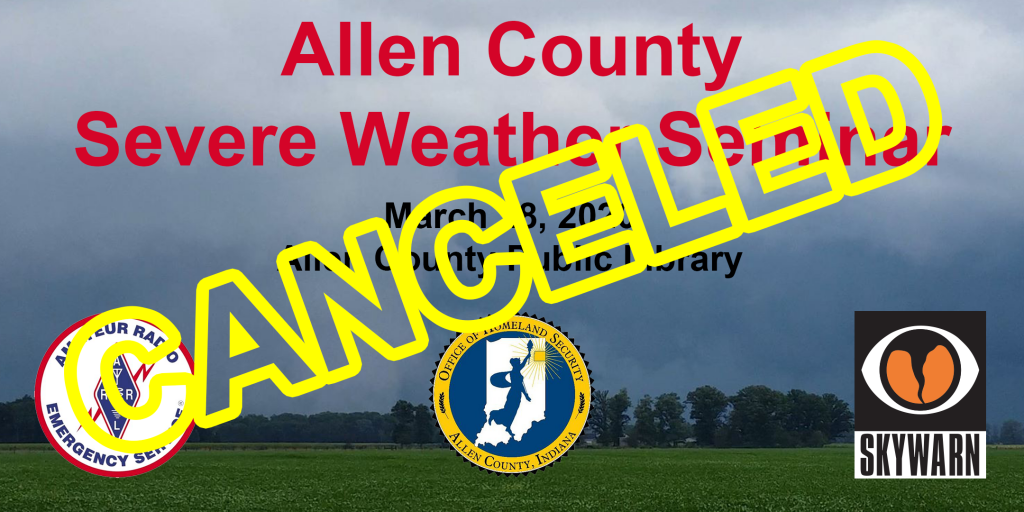
The Allen County Amateur Radio Emergency Service regrets to announce that it has cancelled the Allen County Severe Weather Seminar, originally scheduled for March 28, at the main branch of the Allen County Public Library.
ARES took the action after hearing an explanation this afternoon by Allen County health commissioner, Deborah McMahan, M.D. In a nutshell, she said it is important for people to avoid all unnecessary personal contact, to help keep hospitals and other parts of the healthcare system from becoming overwhelmed or worse, closing. By canceling events and staying home, we probably won’t prevent eventual transmission of COVID-19 countywide, but we might be able to stagger transmission, so we don’t have everyone (including healthcare workers) ill at the same time.
It is in support of that tactic – staggered disease transmission – that ARES canceled the seminar.
ARES doesn’t know at this time whether it will be able to reschedule, because it depends on too many factors. These include when officials like McMahan stop recommending social distancing, speaker availability and venue availability. It is conceivable that if ARES reschedules, it won’t happen until a year from now.
While you’re practicing social distancing by staying home, ARES has some online resources to recommend.
The MetEd (Meteorology Education) website has an excellent, online, two-module course on storm spotting. It’s great for anyone who has never been to a storm spotter class, and it’s also a good refresher for those who have.
Everything on the MetEd website is free, including more advanced classes, such as:
- Anticipating Hazardous Weather and Community Risk, 2nd Edition, a single module that provides background information about weather, natural hazards, and preparedness. Additional topics include risk communication, human behavior, and effective warning partnerships.
- Weather Radar Fundamentals, a single module, presents the fundamental principles of Doppler weather radar operation and how to interpret common weather phenomena using radar imagery.
- Summer Severe Weather, a seven-module course that covers the basic principles of warm-season convective (rising air) weather with the aim of improving the prediction of significant and severe convection.
Another good resource is Thunderstorms – An Introduction, offered on the website of Spotter Network, a nonprofit organization dedicated to helping the National Weather Service receive timely severe weather reports. You must join the organization to take the course, but there’ no fee to join and there are other benefits.
Finally, check out JetStream – An Online School for Weather, hosted by the National Weather Service itself.
